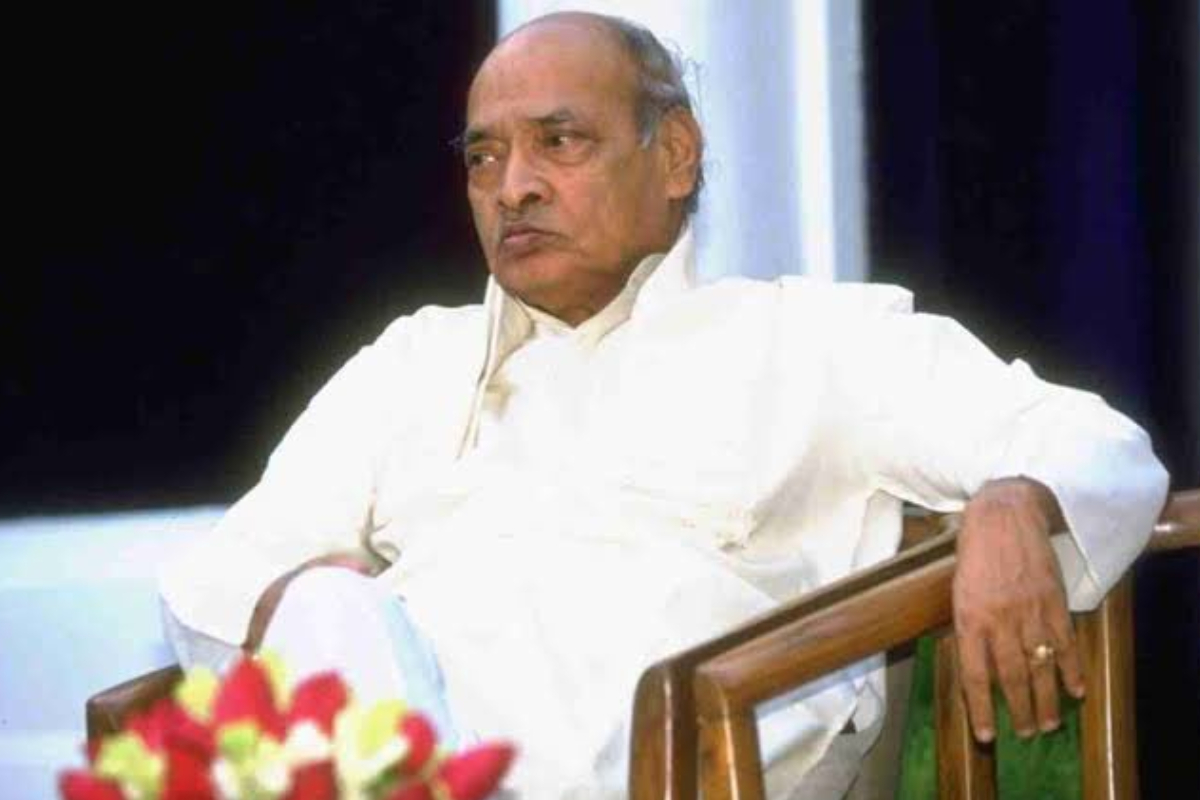

Former Prime Minister PV Narasimha Rao could have sorted out Kashmir, even built the Ayodhya temple

A recent article on former prime minister PV Narasimha Rao’s birth anniversary, which spoke of his ‘muscular policy’ on Kashmir, set me thinking. Not only did Rao handle Kashmir well, but he also had a vision for how to stabilise it. In fact, that outstanding but understated premier might well have solved the problem with regard to Kashmir, and even have got a grand temple set up in Ayodhya – a quarter-century before the current government is doing.
There is no denying that Rao’s brilliant moves brought Punjab under control within a couple of years of his coming to power. The state’s insurgency had been more dangerous than Kashmir’s, but peace followed quite soon after the election of chief minister Beant Singh.
Rao had a measure of success with Kashmir too. Few realise that, by 1994, Rao’s well-controlled handling had brought the majority of Valley citizens around to despising violence, and craving for the return to peace, as in Punjab. I had written about this sentiment after a rural tour in the summer of ’94.
It is worth noting that radicalisation had not made much impact until then, the Jamaat-e-Islami had a hold on less than ten per cent of the population, and the Ahle-Hadith was virtually unknown in Kashmir. Few Kashmiris backed the Pakistani Mast Gul when the Tsrar-e-Sharif shrine was burnt in May 1995. The large majority in Kashmir had abiding faith in shrines.
However, things went awry thereafter, as different powers in the state set-up had different priorities.
Autonomy offer
Rao had instructed the then leading light of the intelligence set-up to persuade Shabir Shah to contest elections, as part of a deal that would have granted any amount of autonomy short of independence. ‘The sky is the limit’, Rao had famously said about the level of autonomy he was willing to allow.
To make this offer, Rao even broadcast a speech from Burkina Faso during the course of a foreign tour. He had already arranged for his friend, the then opposition leader Atal Behari Vajpayee, to meet Shah to extend an olive branch.
Further, he arranged for the dynamic US ambassador, Frank Wisner, to call on Shah at his Srinagar home, to signal US backing for the proposal. More significantly, Wisner told Pakistan in the course of a lecture to its army that Pakistan needed to rethink its strategy with regard to Kashmir.
As it turned out, Shah got cold feet after his colleague in the Hurriyat Conference, Abdul Ghani Lone, yelled at him during a meeting of the Hurriyat executive.
Ironically, Lone was felled seven years later by Pakistan-backed militant’s bullets. Ironically, Lone’s son and political inheritor has cosied up to the establishment so much that he even called Prime minister Modi his brother. How the wheels of fortune turn!
A different line
While Shabir Shah failed to grab the opportunity that was presented to him on a platter, the mover and shaker of the intelligence agencies backed National Conference chief Farooq Abdullah’s return to power. For this, he had the political backing of Rajesh Pilot, Rao’s minister of state for internal security.
Rao did not like this approach. He met Abdullah, but the meeting was not cordial. This despite the fact that he had included Abdullah in the high-profile delegation, led by Vajpayee, which he sent to argue – very effectively – India’s case at the UN Human Rights Council.
Soon after Rao left office, his successor, HD Deve Gowda, held elections for a state assembly with Abdullah as virtually the only viable option for the very few who turned out to vote in the Valley of Kashmir.
A year after Abdullah returned to power, the situation worsened. Mercenaries generically known as ‘Ikhwanis’ and the counter-insurgency arm of the state police had almost free rein – which neither had had under Rao. They often ran riot, at whim, and alienated a fresh generation. They were reined in between 2000 and 2002, under Prime Minister Vajpayee.
As it happened, the terrorist challenge also peaked during Abdullah’s time – after General Pervez Musharraf grabbed power in Pakistan in October 1998. Several suicide attacks against the army and other forces’ encampments took place from December 1999 till the end of 2001.
So badly were bilateral relations strained, especially during the Kargil operations, that the Indian embassy in Islamabad was left at one stage with only a first secretary in charge. (That officer, Vikram Misri, is now a Deputy National Security Advisor.)
Rao had masterfully kept Pakistan guessing from 1991 to ’96, basically ignoring that country. He did not engage Pakistan, nor even criticised the place much.
Grand temple plan
Rao also had a grand plan for the construction of a Ram temple in Ayodhya. After much preliminary work, which included discussions with VHP leaders, the plan was put forward in 1995 under the aegis of several Shankaracharyas and Ramanujacharyas.
Politically, it could have cut the ground under the feet of the BJP and propelled Congress back to power under Rao’s leadership. However, the plan was nixed by the Supreme Court, which ordered that nothing be built on the disputed land until the title dispute was settled.
Rao remained stoic, accepting the huge political setback. He did not bother with a high-voltage political campaign for the 1996 general elections, nor used instruments of the state against those high-profile Congress leaders who had used the Babri Masjid demolition to break away and form a separate party. (Those leaders later became the springboard for Sonia Gandhi to take over the party.)
Rao truly was a philosopher ruler of the sort Plato held up as the ideal. It is tragic that the country has not adequately appreciated his amazing and insightful handling of some of the toughest security challenges in the life of the republic.
David Devadas is a journalist and security, politics and geopolitics analyst
Disclaimer: Views expressed above are the author’s own